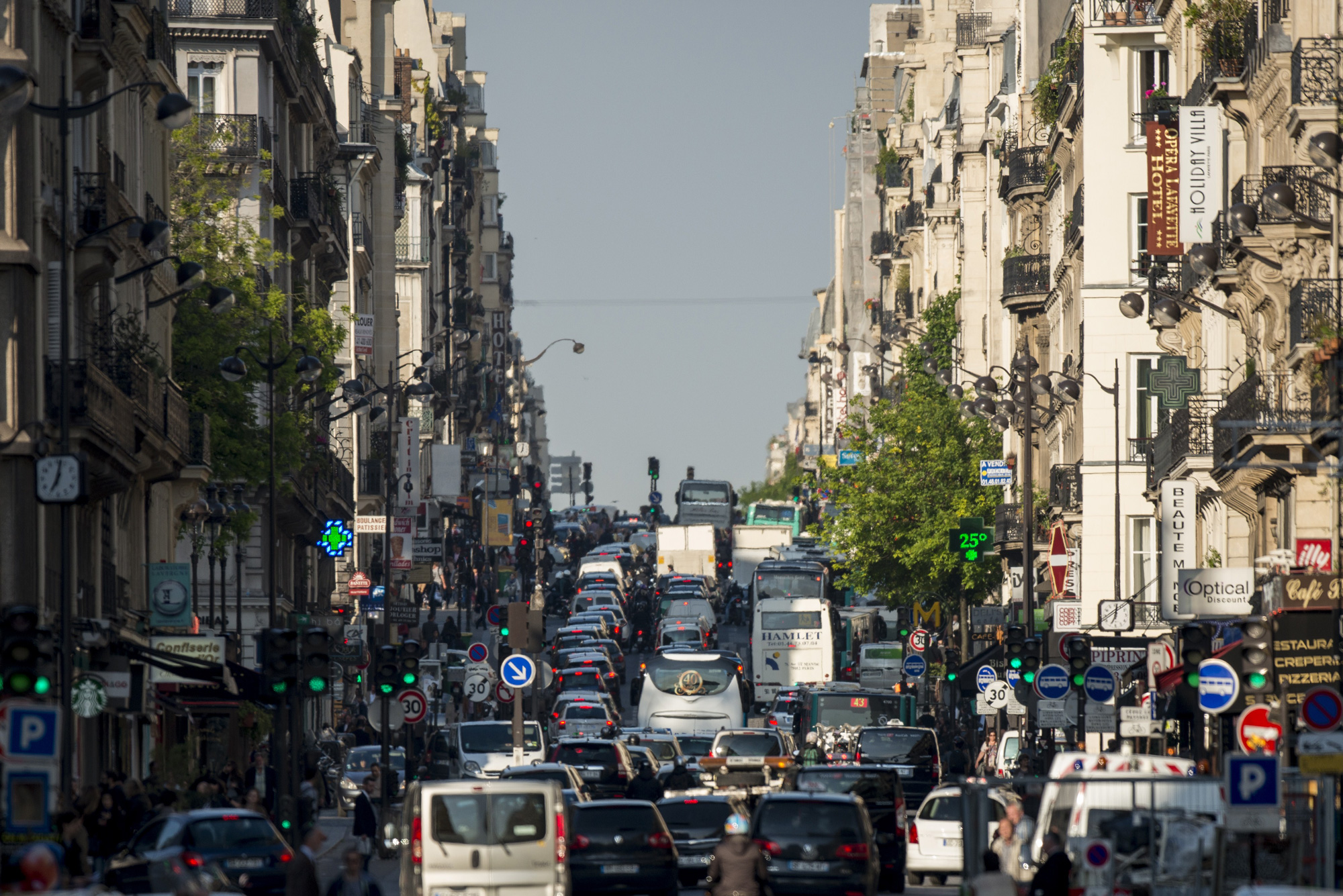Four Huge Cities Are Banning Diesel Cars

By 2025, you’ll be able to breathe a little easier in Paris, Madrid, Athens, and Mexico City. That’s because the four cities have decided to ban cars and vans that run on diesel.
The Guardian reports that the announcement, made at the C40 summit—the network of 40 international cities that have pledged to battle climate change together—is a bid to cut air pollution related to the use of diesel in their city centers. Anne Hidalgo, the mayor of Paris, explained that the policy showed that the cities “no longer tolerate air pollution and the health problems and deaths it causes.”
While diesel cars aren’t particularly common in the U.S., they’re abundant on European roads. That’s because they burn fuel more efficiently than petrol engines, and fuel prices are significantly higher on the other side of the Atlantic Ocean. Diesel and gas cost around 60 and 64 cents per liter respectively in the U.S., compared to $1.30 and $1.50 in France.
But while diesel engines may be more efficient, the combustion of the fuel also produces larger quantities of soot and nitrogen oxides compared to gasoline. And recent research showed that those particulates contribute to the deaths of over three million people each year around the world.
Attempts to clean up the act of diesel cars haven’t gone well. Most famously, Volkswagen’s “clean diesel” automobiles were found to be nothing of the sort. Instead, Paris, Madrid, Athens, and Mexico City will simply ban cars from using the fuel. It’s currently unclear exactly how the initiative will work, as the cities haven’t said exactly which parts of their centers will be subjected to the rules, or how the ban will be phased in.
Despite being inspired by air quality, the rule will also have positive impacts on the climate. Mexico City mayor Miguel Ángel Mancera thinks it’s a chance to boost public transport provision, while the mayor of Athens, Giorgos Kaminis, sees it as part of a longer-term plan to bans car from cities altogether.
It will also help drive electric car adoption. As MIT Technology Review has argued in the past, it is exactly these kinds of dramatic regulatory changes that are required to spur sustainable energy adoption.
(Read more: Guardian, “Global Air Pollution Is Getting Worse, but Removing It Could Worsen Climate Change,” “What the VW Scandal Means for Clean Diesel,” “Here’s How to Speed Up the Electric-Car Revolution”)
Keep Reading
Most Popular
Large language models can do jaw-dropping things. But nobody knows exactly why.
And that's a problem. Figuring it out is one of the biggest scientific puzzles of our time and a crucial step towards controlling more powerful future models.
How scientists traced a mysterious covid case back to six toilets
When wastewater surveillance turns into a hunt for a single infected individual, the ethics get tricky.
The problem with plug-in hybrids? Their drivers.
Plug-in hybrids are often sold as a transition to EVs, but new data from Europe shows we’re still underestimating the emissions they produce.
Stay connected
Get the latest updates from
MIT Technology Review
Discover special offers, top stories, upcoming events, and more.